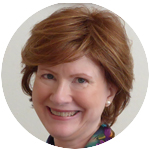
Maureen Pratt
Karen Jackson knows the many challenges faced by parents of children with disabilities. A wife and working mom of three, including a daughter Samantha who has autism, she has lived and learned more than could be captured in a college course about advocating for a child with special needs.
But, far from keeping her lessons to herself, for more than 11 years, Jackson has been dedicated to helping other families raising their children to thrive as much as they can in school, society at large and, most important, in church.
Jackson, a Catholic, was already facilitating a parent support group at her church in Virginia, when, on Jan. 1, 2008, she prayed a specific desire of her heart.
“I prayed that if there was something more I could do to help other families affected by disability to find a church home, I wanted to do that,” said Jackson.
[hotblock]
On the internet, Jackson found resources from other Christian denominations, including the Rev. Bill Gaventa and his efforts on faith inclusion and Erik Carter’s book, “Including People with Disabilities in Faith Communities.”
“(Carter’s book) has a section on starting a network,” said Jackson. “I knew then that I had my mission to begin Faith Inclusion Network (FIN) of Hampton Roads.”
The process of starting the organization and continuing with her other responsibilities was daunting.
“I really had no idea what I was doing,” said Jackson. “I struggled with balancing everything when we first got started. I was excited and passionate, and had to realize that my family didn’t necessarily share this excitement and passion with me. I had to figure out how to balance my teaching, ministry and family, including caring for my daughter, Samantha, who needs 24/7 supervision.”
And there was, at times, a steep learning curve.
“Early on, I contacted a priest who had a disability about being involved in FIN,” said Jackson. “I wanted to hold a prayer service for those who needed healing from the hurt they had experienced from being excluded from faith communities. I did not express myself well enough, however.
[tower]
“He only heard ‘healing’ (‘curing’) and thought I wanted to hold a prayer service to pray for (a cure) for people with disabilities. I learned a valuable lesson in being very careful about how to speak about healing with the disability community.”
Jackson’s home parish supported her efforts, hosting Faith Inclusion Network’s first meeting in May 2008 and a book launch in 2015 for Jackson’s “Loving Samantha.” But the network rapidly grew into its own office space.
(Related: See details for the Archdiocese of Philadelphia’s 2019 Mass for Persons with Disabilities and a retreat for mothers and caregivers of children with disabilities.)
In May 2009, Faith Inclusion Network held its first conference and added services, including networks for families to connect with welcoming congregations, local workshops and “community conversations” on faith and disability topics. An annual clergy breakfast brings local pastors and rabbis together for sharing a meal and more.
“This has been very popular so far,” said Jackson, “and has connected us with people in the area we might not have had the chance to meet otherwise.”
This year’s retreat and conference (March 7-8) will bring together people from across the U.S. Jackson and her team have more plans in the works, including a national faith and disability leaders’ network and ways to help others around the country to start a chapter.
For all the network’s growth, Jackson knows its heart remains family and the daughter who inspires her.
“Although Samantha cannot tell me what she is thinking,” said Jackson, “I appreciate not only her participation, but also her inspiration behind event ideas. And I also appreciate that she seems to proudly wear her FIN T-shirts!”



Share this story